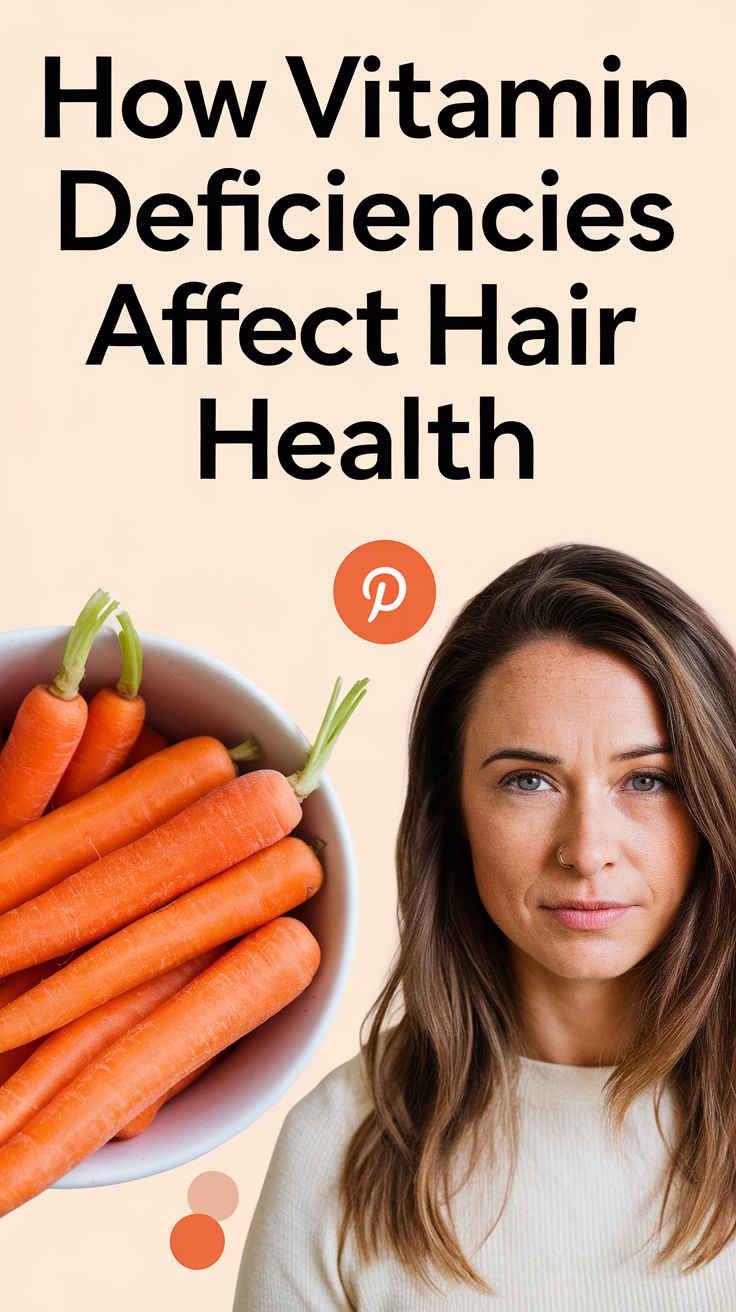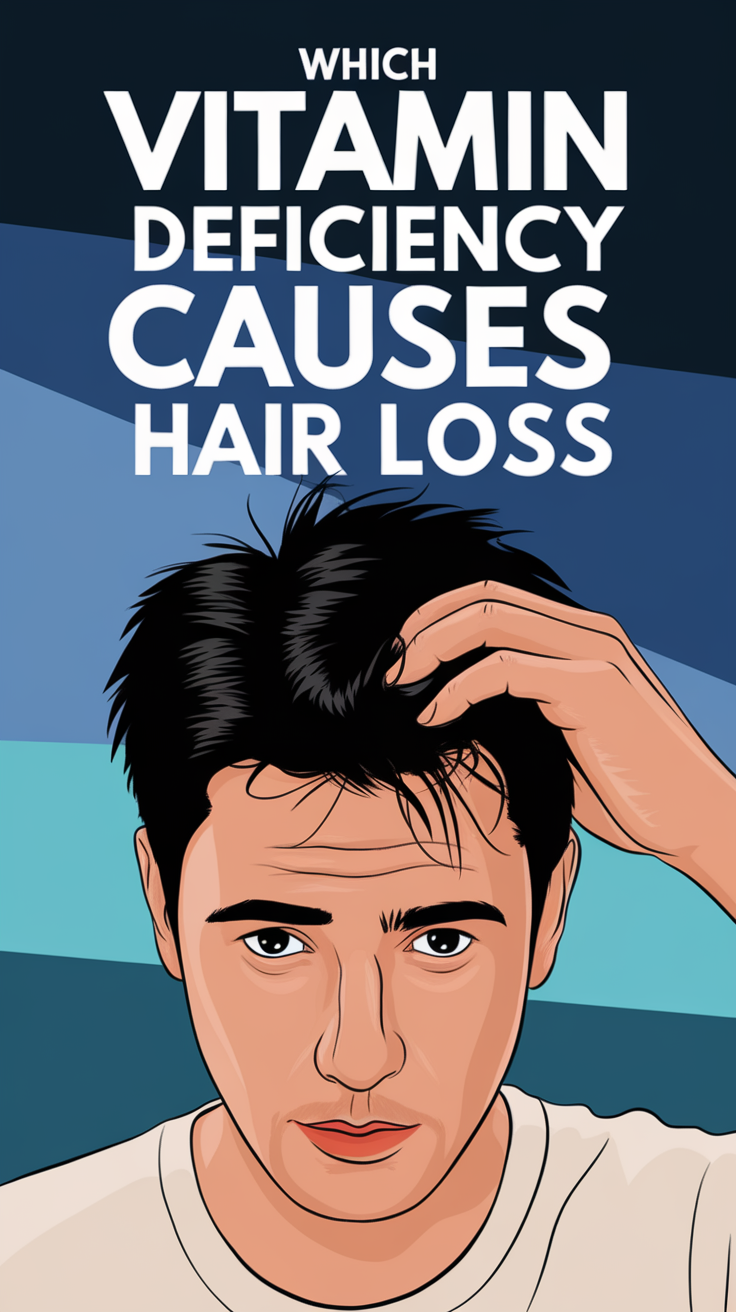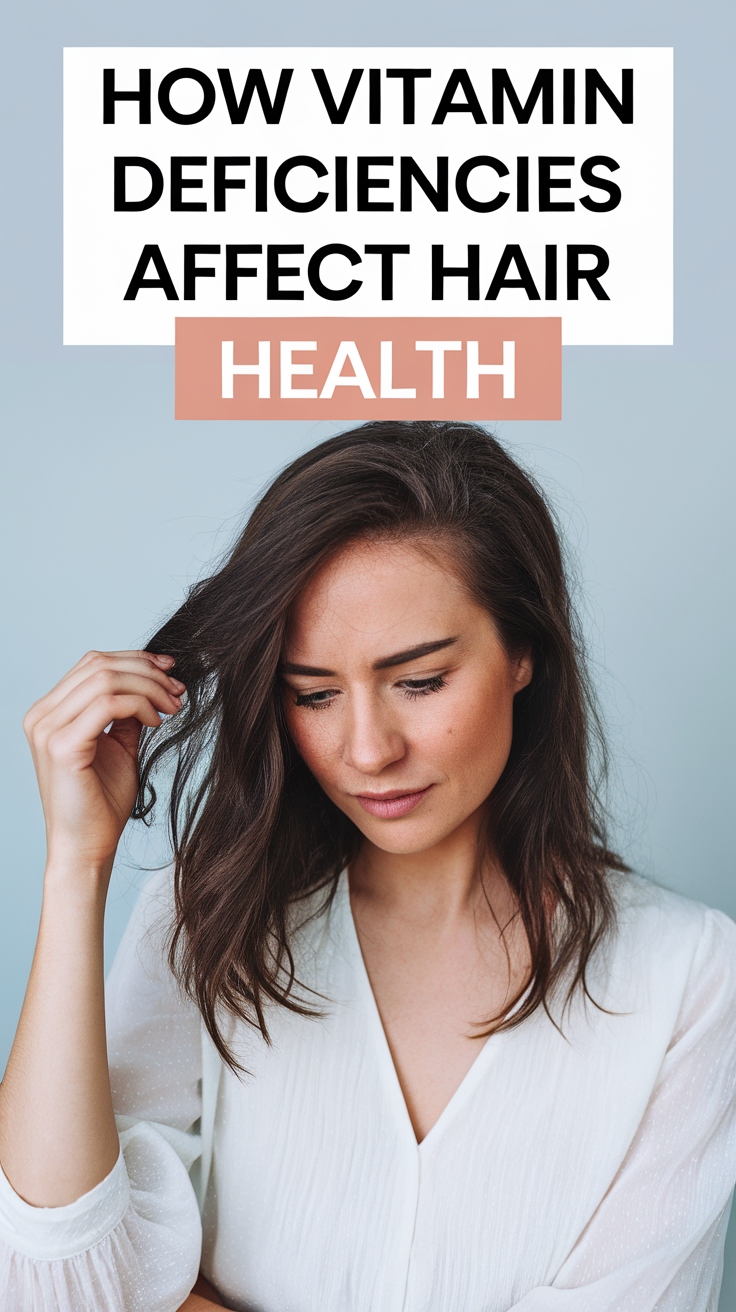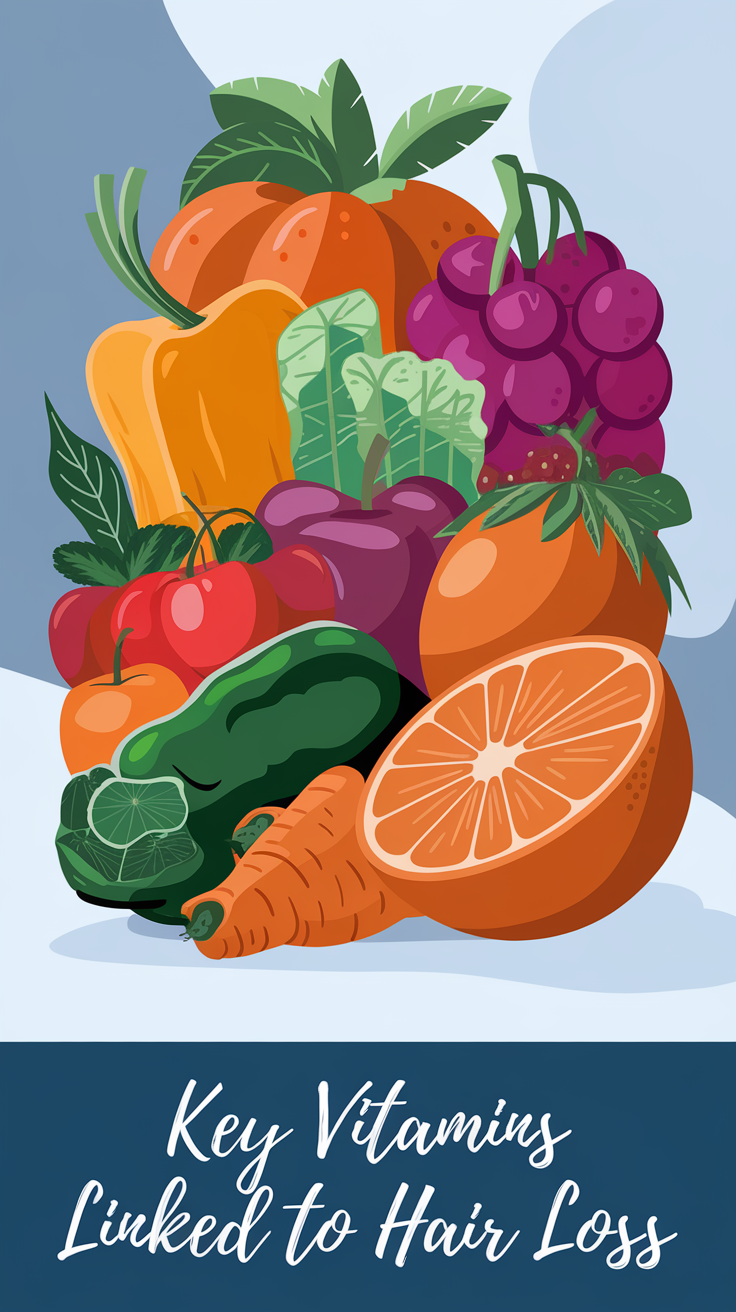Which Vitamin Deficiency Causes Hair Loss?
Hair loss affects millions of people worldwide, and while genetics and lifestyle often play a role, nutritional deficiencies can be a major culprit. I’ve personally experienced how diet and supplements can impact hair health, and I know how confusing it can be to navigate the world of vitamins. In this article, I’ll share a detailed guide on which deficiencies lead to hair loss, how to address them, and tips for restoring hair vitality.
How Vitamin Deficiencies Affect Hair Health
The Role of Vitamins in Hair Growth
Vitamins nourish hair follicles, regulate scalp health, and support the hair growth cycle. When these nutrients are lacking, hair becomes brittle, weak, and prone to shedding.
Key Vitamins Linked to Hair Loss
Vitamin D
Vitamin D stimulates new hair follicles, aiding in hair regeneration. Its deficiency is linked to conditions like alopecia areata. Without enough Vitamin D, hair may thin significantly over time.
Table 1: Key Sources of Vitamin D
| Source | Amount of Vitamin D |
|---|---|
| Sunlight (10-15 mins/day) | Natural synthesis in skin |
| Fatty Fish (e.g., Salmon) | 450 IU per 100g |
| Fortified Milk | 120 IU per cup |
B Vitamins (Biotin and B12)
- Biotin (B7): Supports keratin production, essential for strong hair. Its deficiency causes brittle hair and nails.
- Vitamin B12: Ensures oxygen supply to hair follicles. Without it, hair growth slows, and excessive shedding occurs.
Iron and Vitamin C: A Symbiotic Pair
Iron deficiency is a common cause of hair thinning, especially in women. Vitamin C enhances iron absorption, making both critical for hair health. Symptoms of iron deficiency include fatigue, pale skin, and noticeable hair thinning.
Table 2: Iron and Vitamin C-Rich Foods
| Food | Iron (mg) | Vitamin C (mg) |
|---|---|---|
| Spinach (100g) | 2.7 | 28 |
| Lentils (1 cup) | 6.6 | – |
| Oranges (1 medium) | – | 70 |
Beyond Vitamins: Other Nutrients Vital for Hair
Zinc and Selenium
- Zinc: Essential for follicle repair and preventing excessive shedding.
- Selenium: Protects follicles from oxidative damage.
Omega-3 and Omega-6 Fatty Acids
These healthy fats maintain scalp hydration and reduce inflammation, ensuring optimal hair growth.
Practical Tip: Include walnuts, flaxseeds, and fatty fish like mackerel in your diet for a natural boost.
Lifestyle Factors Affecting Hair Health
Hydration and Protein Intake
Hair consists mostly of keratin, a protein. Without sufficient protein and hydration, hair becomes weak and prone to damage.
Stress and Hormones
Chronic stress and hormonal imbalances, such as those from thyroid issues or PCOS, can exacerbate hair loss.
Steps to Address Hair Loss from Deficiencies
Consult a Healthcare Provider
Blood tests can pinpoint deficiencies, especially for Vitamin D, iron, or B12.
Tailored Diet
Incorporate nutrient-dense foods into your meals. For example:
- Add spinach and lentils for iron.
- Snack on nuts and seeds for biotin and zinc.
Smart Supplementation
Use supplements only under medical guidance to avoid over-supplementation, which can lead to side effects.
Common Myths About Hair Loss
Myth: Biotin Alone Solves Hair Loss
While biotin is essential, hair loss often results from multiple deficiencies or factors.
Myth: Supplements Work Overnight
Hair growth is slow. Visible improvements may take 3–6 months of consistent care.
FAQ
1. Can a multivitamin cure hair loss?
Multivitamins help address deficiencies but aren’t a standalone cure. Proper diagnosis is essential.
2. How quickly will hair grow back after correcting deficiencies?
Hair regrowth typically begins within 3–6 months, depending on the severity of the deficiency.
3. Can excessive vitamins cause hair loss?
Yes, over-supplementation (e.g., Vitamin A) can lead to shedding.
4. Are there other non-vitamin causes of hair loss?
Yes, genetics, hormonal imbalances, and stress are significant contributors.
5. Can diet alone prevent hair loss?
While diet plays a critical role, addressing underlying medical issues is equally important.
Conclusion
Hair loss is often a multi-faceted problem, but understanding the role of vitamins and nutrients helps tackle it effectively. By ensuring a balanced diet, managing stress, and seeking medical advice when needed, you can take proactive steps to maintain healthier, fuller hair.




